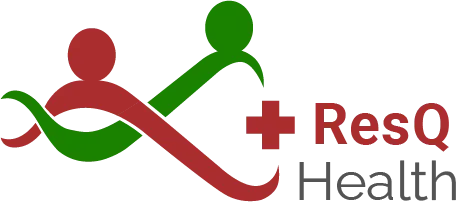
Identifying and Overcoming Bottlenecks in Training Operations
No matter how well-planned a training operation might be, bottlenecks can still pop up and slow everything down. These annoying delays can affect both trainers and learners, causing a ripple effect of frustration and inefficiency. Recognizing where these bottlenecks occur is the first step in fixing them.
Understanding bottlenecks is helpful because it reveals hidden issues in the training process. By spotting the signs early, it's possible to tackle the problem before it grows bigger. This means everyone can enjoy a smoother and more enjoyable training experience.
The good news is that with some clever changes and maybe a bit of technology, trainers can make those bottlenecks a thing of the past. By focusing on areas that need improvement, better strategies can be put in place. This ensures that the training operations run like a well-oiled machine, benefiting both trainers and learners alike.
Recognizing Common Bottlenecks in Training Operations
Bottlenecks in training operations can sneak in when least expected, creating hurdles that slow down the entire process. Identifying where these delays commonly occur is crucial. Often, bottlenecks appear during scheduling, resource distribution, or even in the communication between trainers and trainees. Tasks piling up in these areas often lead to unnecessary wait times which disrupt the flow.
The impact of these bottlenecks can be quite significant. They can reduce overall efficiency, making it harder to meet training goals on time. Trainees may feel frustrated due to inconsistent sessions, and trainers might feel overwhelmed trying to catch up on delayed tasks. Such delays can influence motivation and the quality of training delivered, resulting in a ripple effect that reaches the end goals.
Recognizing signs that a process is becoming a bottleneck is essential for timely action. For instance, if scheduling conflicts continuously occur or resources aren't available when needed, these are clear indicators of a bottleneck developing. Noticing an increase in wait times for responses or decisions signals a problem, allowing adjustments to be made before they grow larger.
By acknowledging these areas and understanding their impacts, trainers can prepare to address them effectively. This ensures smoother training operations and better outcomes for everyone involved.
Analyzing Causes and Effects of Bottlenecks
Understanding the reasons behind bottlenecks is the next step in resolving them. Determining root causes requires looking into aspects like staffing levels, resource availability, or even the systems in place. Overloaded schedules, outdated technology, or unclear communication guidelines may all contribute to slowdowns, creating a snowball effect that impacts the entire operation.
When bottlenecks occur, they heavily affect trainer productivity and learner satisfaction. Trainers may experience burnout from excessive workloads and little time to focus on teaching quality. Learners might feel disengaged or frustrated by the inconsistency in training sessions, which can hinder their performance and motivation.
Exploring how unaddressed bottlenecks can escalate is crucial. Continued neglect can expand delays, causing a cascade of issues that could affect aspects like attendance rates and overall training success. Ignoring such problems risks magnifying them, making them harder to deal with later.
By analyzing these causes and their effects, trainers can better plan for solutions that minimize disruptions and maintain high standards in training operations. Understanding this helps ensure that both trainers and learners remain satisfied and productive.
Strategies for Streamlining Operations
Finding effective strategies to streamline operations can put an end to bottlenecks once and for all. Techniques for eliminating or reducing bottlenecks involve organizing tasks and responsibilities more efficiently. Setting clear priorities helps ensure that resources are directed where they are needed most, keeping training sessions smooth and consistent.
Utilizing technology is another powerful way to manage bottlenecks. Automating repetitive tasks, like sending reminders or processing registrations, saves time and reduces human error. Implementing software that manages schedules or handles basic queries allows trainers to focus on what truly matters—delivering quality training.
Optimizing scheduling and resource allocation is crucial. It is important to make sure that no time is wasted and every resource is used efficiently. Coordinating trainer and learner availability with the right tools ensures that sessions are run at the best times. By making these strategic adjustments, training operations can run more efficiently, benefiting everyone involved.
Monitoring and Continuous Improvement
To keep bottlenecks from returning, a system for ongoing assessment should be in place. Regularly reviewing operations and identifying areas needing attention prevents problems from escalating. This proactive approach allows adjustments before minor hitches turn into major disruptions.
Gathering feedback from both trainers and learners plays a crucial role in detecting new bottlenecks early. Feedback provides insights into daily operations and highlights areas that may require changes. It encourages open communication and a shared goal of improving the training process.
Adapting processes for sustained operational smoothness ensures that improvements last. By remaining flexible and responsive to changes, training operations can efficiently meet the needs of both trainers and learners. Continuous improvement guarantees that the training environment is always evolving for the better.
Conclusion
Identifying and overcoming bottlenecks in training operations is essential for creating a seamless and productive environment. Addressing delays and operational slowdowns enhances satisfaction for both trainers and learners. Streamlined operations lead to more effective training, better results, and a more positive experience overall.
ResQ Health offers the tools needed to tackle bottlenecks head-on. Discover how our platform’s innovative solutions can help you streamline your training operations. With online scheduling, reputation management, and student feedback all in one place, ResQ Health supports your journey to success. Explore our training scheduling software to enhance your effectiveness today.


Building healthy communities through the power of rescue training!
Quick Links
Our Solutions
Office
276 Newport Road, Suite 205
New London, NH 03257
Days Open
Monday - Friday
9 AM - 5 PM
